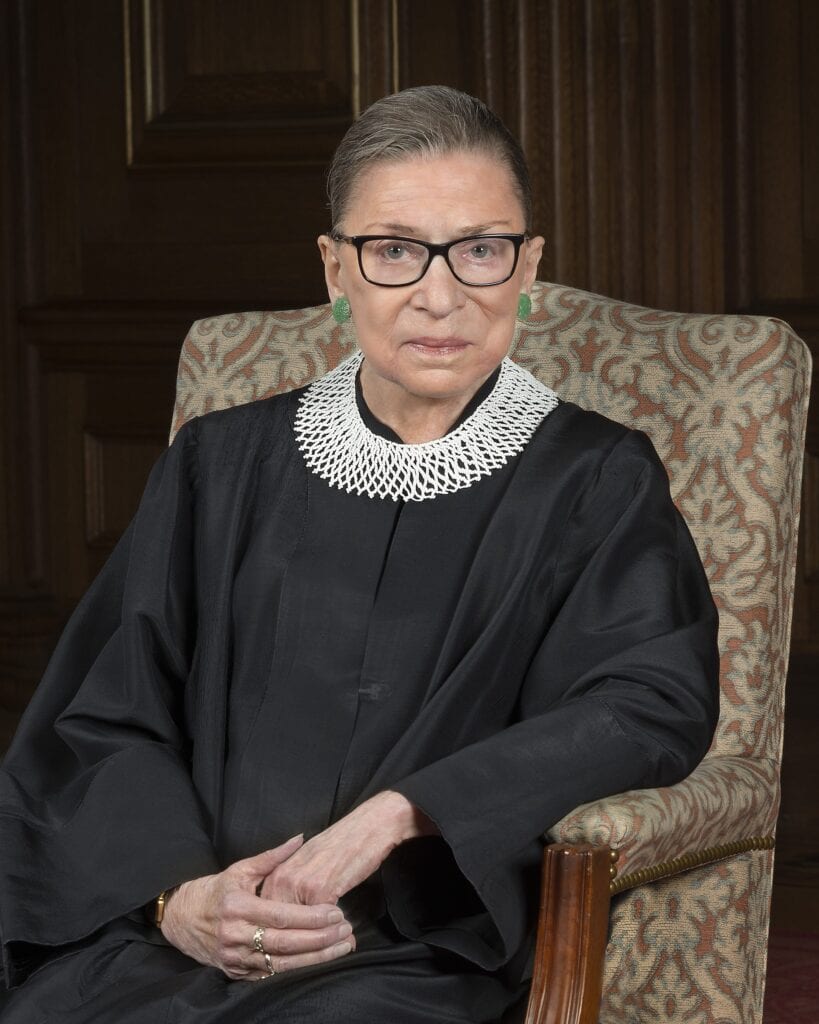
Supreme Court Justice Ruth Bader Ginsburg
By Glynn Wilson –
The death of Supreme Court Justice Ruth Bader Ginsburg and the political fight over her replacement could jolt the presidential race and the competitive battle for control of the United States Senate just six weeks before the election, prompting survey research company the Morning Consult Poll to question whether Democratic or Republican voters are more motivated by the issue.
In a Morning Consult/Politico poll from Sept. 18-20, conducted after Ginsburg’s death on Friday, reveals a more energized response from the left than from the right, at least in the short term.
As President Donald Trump goes forward with plans to announce a Ginsburg replacement this week and Senate Majority Leader Mitch McConnell is signaling he will push for a vote to confirm a new justice before the election, the poll found that a majority of voters believe he should have to win re-election in order to pick the liberal justice’s successor.
A full 50 percent said the winner of the presidential election should fill the vacancy because of the proximity to Election Day, an argument being made by Democratic presidential nominee Joe Biden and other Democratic leaders, who point to Senate Majority Leader Mitch McConnell’s stated rationale for refusing to consider President Barack Obama’s nomination of Merrick Garland after conservative Justice Antonin Scalia died in February 2016.
Related Coverage: Senators React to Supreme Court Power Play by Trump and McConnell
At that time, Morning Consult polling found voters more closely divided: 42 percent said Obama should nominate a justice, while 45 percent said the 2016 election winner should get to pick.
Compared to a week ago, the share of Democratic voters who said the Supreme Court was “very important” in deciding whom to vote for in the November elections jumped 12 percentage points to 60 percent, while the share of Republicans who said the same increased marginally, from 50 percent to 54 percent during the same time frame.
Those upticks, combined with a 9-point increase among independents, amounted to a 9-point jump in the Supreme Court’s significance as a voting issue among the broader electorate since the previous survey conducted Sept. 11-14.
Fifty-six percent of all voters in the new survey said the court was very important to their vote, making it one of the five most potent topics facing voters ahead of Election Day, along with the economy, health care, COVID-19 and national security.
Among Democrats and Republicans, the court still ranks below the economy and health care, but is now considered about as important as the coronavirus pandemic by Republicans.
In last week’s survey, the Supreme Court ranked near the bottom of voters’ priority lists, alongside immigration, foreign policy and relations with China.
Each poll was conducted among roughly 2,000 registered voters and had a 2-point margin of error.
The Supreme Court vacancy garnered sharp partisan opinions among voters, with 79 percent of Democrats backing a nomination delay and 71 percent of Republicans saying Trump should make the decision.
Independent voters mirrored the overall electorate, with 49 percent saying the nominee should be made by the president who will be sworn in next January, while 31 percent said it should be up to the current occupant of the White House.
News of Ginsburg’s passing quickly broke through to voters: 58 percent said they had seen, read or heard “a lot” about the 87-year-old jurist’s death amid complications from pancreatic cancer, placing it in the top 10 news events of 2020. Similar shares of voters earlier this year reported hearing “a lot” about the World Health Organization’s declaring the coronavirus a pandemic (57 percent) and the Senate’s vote to acquit Trump in his impeachment trial (58 percent).













